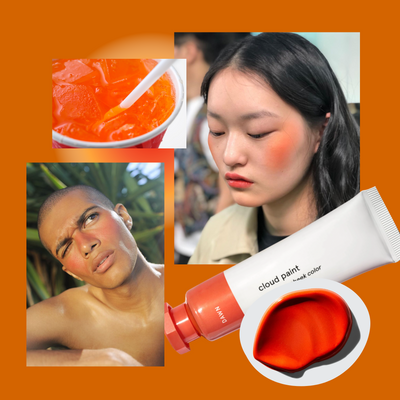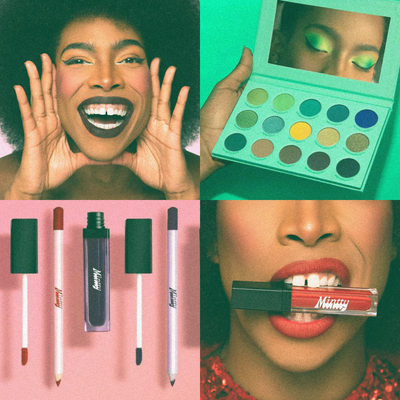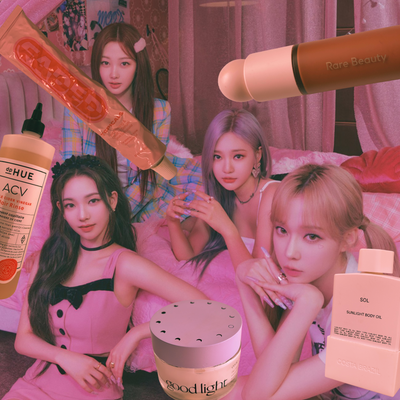BTS is the world’s biggest music act since the Beatles.
They’ve sold millions of albums, have billions of music video views (“Boy With Luv” was the most viewed YouTube video in 24-hours), and have won over 200 music awards, including from the Billboard and American Music Awards.
But unlike the British imports, South Korea’s BTS is ushering another worldwide phenomena: triggering white supremacy en masse. With all of the visibility and fame, the 7-member Korean pop band has inspired xenophobia, homophobia, racism, and misogyny.
SEE ALSO: 5 Brands attempting to redefine men’s beauty
This week, hosts for Dzien Dobry TVN, a Polish morning television show produced an entire segment proving why members of BTS shouldn’t have topped TC Candler’s “100 Most Handsome Faces” list for 2019 (the band’s youngest member, Jeon Jungkook, came in at #1).
“He’s not very masculine,” one of the hosts remarked. “More like a little boy than a man.” The segment went on to interview people on the streets of Poland to support their thesis of anti-Asian sentiments with some questioning the sex of the members. Prompted on social media on why such a segment was produced, its host, Anna Kalczyńska-Maciejowska said this: “Jungkook wears lipstick, wears huge earrings and is experimenting with the look that I don’t find masculine.”
This comes after dozens of other instances over the years of blatant anti-Asian sentiment around the world. From a white Australian television host mocking their Korean heritage, members receiving homophobic remarks from their recent Formula E campaign, to Twitter sounding off on why foreigners were being honored by the American Music Awards, BTS’s treatment has been unfair at best and hateful at worst.
Though inexcusable, such hatred is predictable. Minimizing Asian male importance stems from a long history of white supremacy, promoting the idea that a certain person is more important than another. It’s also this long-held belief that only one form of masculinity can exist.
Koreans then, with their dewy complexions, their juicy red lips, their smokey eyes, and piercings, challenge Western ideals of men altogether. For them, power comes in the form of a white man who is gruff, rough, hyper-masculine. For a more fluid form of masculinity to exist has confounded some, enraged others. Coming to terms with Asian male sexuality threatens white male power, a concept that white people rarely have to experience. This place of discomfort – feeling eclipsed of power – instills fear.
After all, white people from around the world have long attempted to minimize Asian male sexuality in all forms. One only needs to look at American history and “Yellow Peril” to witness its devastating decades-long effect for Asian men. The entire movement was a deliberate campaign of Asian male erasure, one that was created to completely castrate Asian men of sexuality and desire. Sparked by white men’s fear that they were losing their white women to “foreign” powers, Yellow Peril was successful at minimizing Asian male existence. To this day, Asian Americans still feel the effects of emasculation, leading to psychological impacts that include thoughts of suicide, low self-esteem or self-worth. A recent study found Asian men to be the “least desirable” demographic in America by both straight and gay communities, in what’s now known as “sexual discrimination.”
There are parallels to BTS and 1910’s with Hollywood heartthrob, Sessue Hayakawa, who was the era’s biggest leading actor. A Japanese-born actor during the era of silent films, Hayakawa became a sensation after his role in 1915’s The Cheat. The role made him into a sex symbol and romantic idol, with a majority of American women perceiving him as the pinnacle of male desirability. All this changed after anti-Japanese sentiment that came along with Yellow Peril. The campaign no longer promoted Asian males as human, rather, villainized, emasculated, and otherized.
It’s taken a decade for Asian males to reclaim their power and BTS and Kpop is leading that charge. But we need to collectively remember the deliberate anti-Asian campaigns of the 1900’s and be aware of how this has a real effect to Asian men’s lives. Poking fun at Asian males or dismissing their sexuality isn’t innocent, rather, nefarious and dangerous. It’s had lasting trauma for millions of Asian men around the world. Dismissing BTS’s beauty as being effeminate, calling them “boys,” or criticizing their style isn’t subjective criticism – it’s hateful and stems from white supremacy.
Let us not fall into white fragility and allow it to fester into something evil again. While BTS and their music might not be for everyone, we must be hyper-aware of racism, xenophobia, and fight hard so another mass anti-Asian campaign never exists again.






